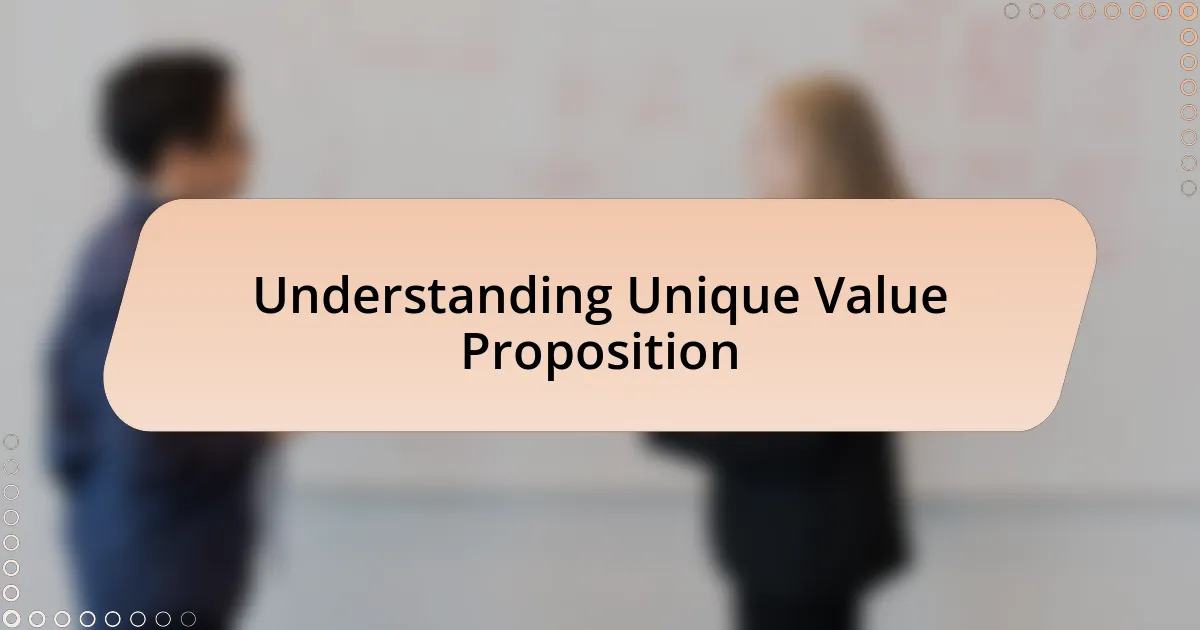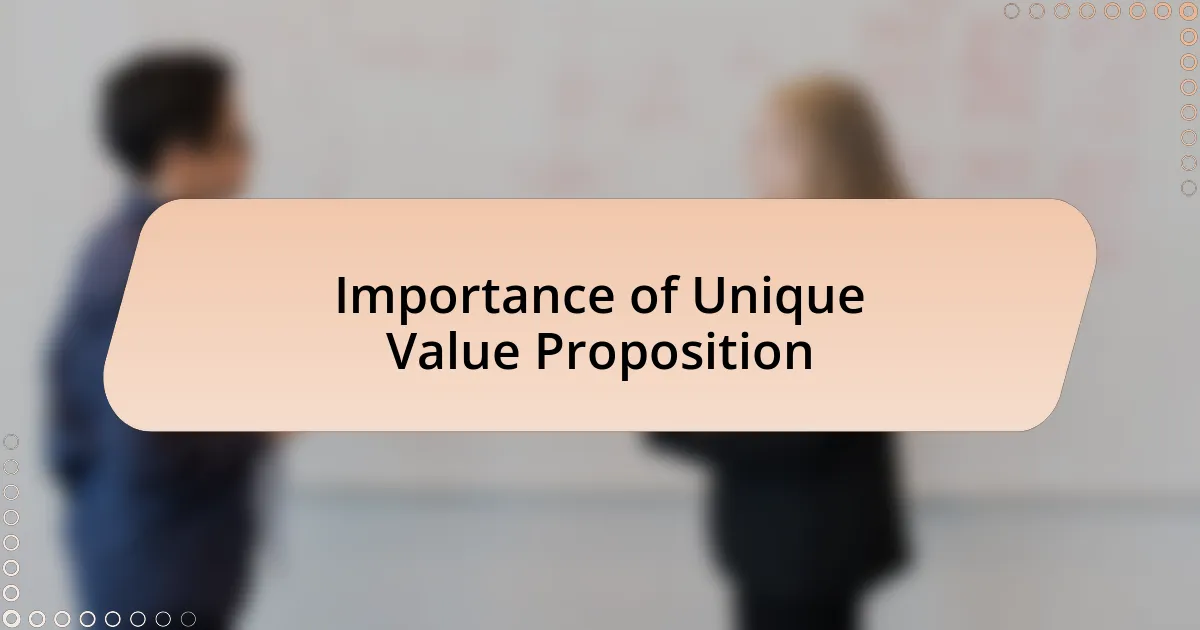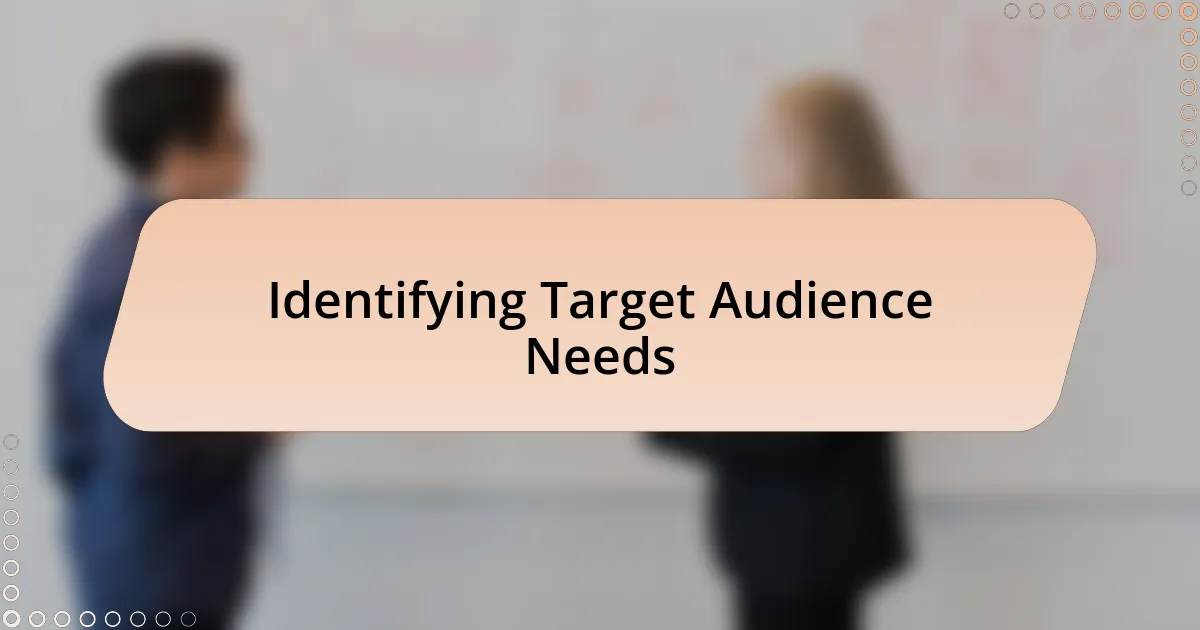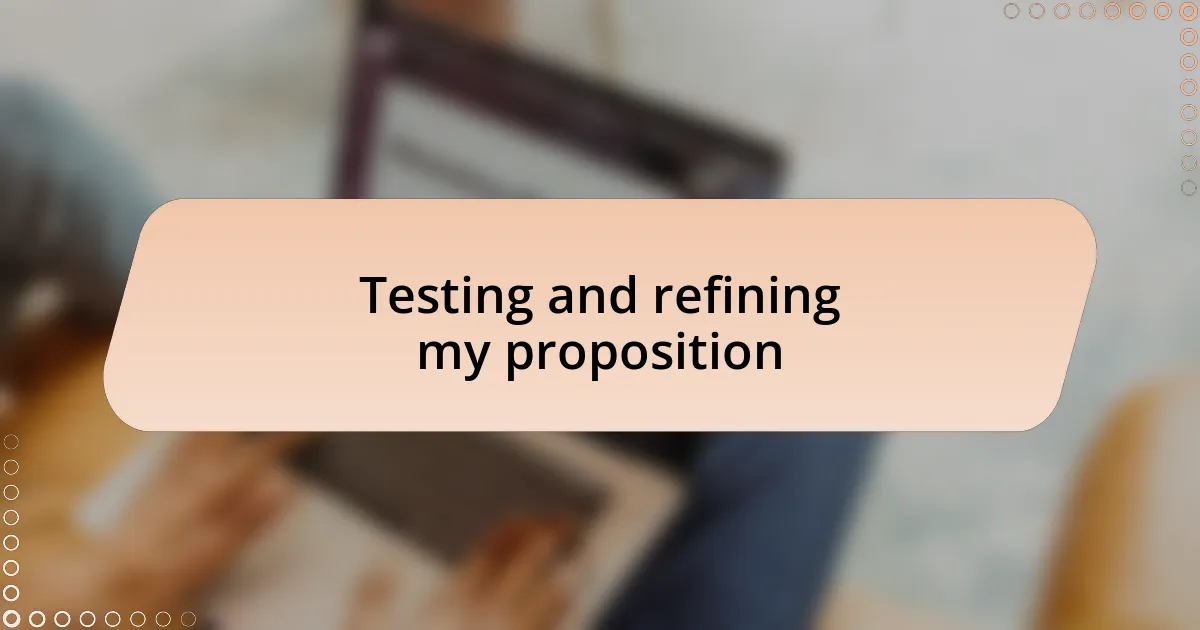Key takeaways:
- A Unique Value Proposition (UVP) defines what sets a service apart and is essential for establishing trust and loyalty with clients.
- Understanding the target audience’s needs through in-depth engagement and feedback is crucial for crafting an effective UVP.
- Analyzing competitors helps refine messaging by focusing on clarity and the genuine value offered, rather than superficial appeal.
- Testing and refining a UVP through feedback and data is essential for ensuring it resonates with potential clients and addresses their emotional needs.
Author: Evelyn Harper
Bio: Evelyn Harper is an award-winning author known for her captivating novels that explore the complexities of human relationships and the beauty of everyday life. With a background in psychology and a passion for storytelling, she weaves intricate narratives that resonate with readers around the globe. Evelyn’s work has been featured in numerous literary magazines, and her debut novel was listed as a bestseller. When she’s not writing, she enjoys hiking in the mountains of her home state, Oregon, where she draws inspiration from nature and the world around her.
Understanding Unique Value Proposition

A Unique Value Proposition (UVP) is more than just a catchy slogan; it’s the core message that encapsulates what makes your service distinct. I remember when I was first defining my own UVP, the challenge felt daunting—how do I encapsulate my essence into a single sentence? It’s about identifying the unique benefits you offer compared to competitors, and sometimes that means digging deep into your experiences and insights to pinpoint what truly sets you apart.
What do your clients need that others in your field don’t provide? It’s a question I often reflect on when consulting with businesses. For me, my UVP emerged from listening closely to clients’ frustrations and aspirations. This emotional connection not only framed my offering but also reinforced the trust that drives my consulting practice. Understanding your audience’s pain points can guide you in crafting a UVP that resonates and aligns with their expectations, turning interest into loyalty.
Engaging with your UVP is an ongoing process; it evolves as you gain new insights and experiences. One time, after a particularly insightful feedback session with a client, I realized that my emphasis on personalized marketing strategies was where I could truly shine. That day shifted my perspective on what my UVP should communicate—it’s not just about delivering services, but about truly understanding and catering to clients’ unique needs. Isn’t it fascinating how the journey of finding your UVP often mirrors the growth of your expertise?
Importance of Unique Value Proposition

A Unique Value Proposition is crucial for standing out in a crowded market. I’ll never forget the moment I realized how powerful my UVP was during a client pitch. The other consultants were showcasing generic solutions, but I was able to directly connect my proposal with the client’s specific challenges, which earned their trust almost immediately. This experience reinforced for me that a well-defined UVP not only differentiates you from competitors but also builds deeper connections with potential clients.
When clients understand your distinct value, it can transform their decision-making process. I recall a time when a potential client was torn between choosing my services and one of my peers. What swayed them was my ability to articulate my UVP clearly, illustrating the tangible benefits they would gain from my bespoke approach. It’s moments like these that illustrate how a compelling UVP can be the deciding factor in winning business opportunities.
Additionally, a strong UVP is not just useful for attracting clients; it also serves as a guiding principle for your business decisions. I often find myself reverting back to my UVP when determining which projects to pursue or how to allocate resources. Reflecting on my unique value helps me maintain focus and ensures that everything I do aligns with that central message. Isn’t it remarkable how this clarity can steer the direction of your consulting practice and empower you to serve your clients better?
Identifying Target Audience Needs

Understanding the needs of your target audience is essential for shaping your Unique Value Proposition. I remember a project where I conducted in-depth interviews with potential clients. They revealed frustrations that I hadn’t even considered, like a lack of personalized attention from previous consultants. This insight made me rethink my approach, leading to the realization that my offering needed to emphasize tailored strategies. Have you ever asked open-ended questions in a conversation only to uncover unexpected insights? That’s the kind of deep listening that can shape your value.
I found that using surveys and feedback forms helped clarify what my audience truly valued. A simple question, “What are your biggest marketing challenges?” opened up a treasure trove of responses. It was eye-opening to see common themes emerge. If I had simply assumed what they wanted, I would have missed the mark entirely. Engaging your audience in this way fosters a connection that goes beyond mere transactions; it cultivates a relationship built on understanding.
Creating personas based on the insights gathered can also be invaluable. I crafted profiles that highlighted not only demographics but also emotions and pain points. With these personas, I could visualize exactly who I was serving. This approach filled me with a sense of purpose—knowing that my strategies would directly address the unique obstacles my audience faced. How can you leverage these personas to refine your UVP? It’s about continuous improvement and ensuring your value proposition resonated with those who need it most.
Analyzing Competitors’ Value Propositions

Understanding competitors’ value propositions is key to carving out your unique space in the market. I’ve spent countless hours diving into what my competitors presented to potential clients. One competitor stood out with their flashy slogans and appealing graphics, but when I examined their testimonials, it became clear that clients craved more than just glitz—they sought genuine results. Have you ever realized that sometimes, what looks good on the surface can miss the deeper needs of your audience?
As I analyzed various competitors, I took notes on how they communicated their value. I noticed that many relied heavily on jargon that left clients feeling confused rather than empowered. This taught me that clear communication is vital; I wanted my proposition to resonate effortlessly with my audience. What would happen if we focused on simplicity instead? This shift in focus helped me refine my messaging, making it straightforward and relatable.
Another key takeaway emerged from studying competitors’ pricing strategies. I observed how a competitor’s lower prices attracted attention, but it often meant compromised quality. This made me realize I could emphasize the long-term value of my services over short-term savings. Isn’t it important to demonstrate that investing in quality leads to better outcomes? This insight fueled my desire to show potential clients that while they might pay more upfront, the return on investment would far outweigh the initial cost.
Crafting My Unique Value Proposition

When crafting my unique value proposition, I reflected deeply on what truly sets my consulting services apart. It wasn’t just about filling a gap in the market; it was about tapping into my passion for creating tailored strategies that drive real results. I remember a particular client who felt overwhelmed by generic approaches; they needed someone who would listen and adapt to their specific needs. That experience solidified my belief: understanding the individual behind the business is crucial. How would my consulting style resonate if I positioned myself as a partner, not just a provider?
Through this reflective process, I also recognized the importance of emotional connection in my messaging. One evening, I was brainstorming and realized that many of my potential clients might feel anxious about their marketing choices. By demonstrating empathy in my unique value proposition, I could address those fears head-on—inviting them to see my guidance as a reassuring hand amidst uncertainty. Suddenly, it became clear that my proposition wasn’t just about what I offered; it was about how I made clients feel understood and supported.
Finally, as I pieced everything together, my unique value proposition emerged: a promise of personalized, results-oriented strategies delivered with compassion and clarity. I recall the moment it clicked; I envisioned a client reading my messaging and feeling a sense of relief. Wouldn’t it be amazing if they thought, “Finally, someone gets it”? That’s why I focused on blending strategic insight with genuine care, ensuring that my value proposition reflected both my expertise and my commitment to client success.
Testing and Refining My Proposition

Once I crafted my initial value proposition, I knew it was essential to put it to the test. I shared it with a small group of trusted peers and potential clients, eager to hear their reactions. Their feedback was eye-opening; while some aspects resonated well, others fell flat, making me realize the importance of being adaptable. How could I refine my message to connect better with those I aimed to serve?
As I gathered insights, I also experimented with A/B testing on my website. I ran two different landing pages—one emphasizing empathy and the other focused on results. The metrics revealed a notable difference in engagement, which forced me to rethink how I communicated my value. Isn’t it fascinating how numbers can tell a story? That experience taught me that listening to both data and the audience’s voice is crucial in refining my proposition.
In refining my messaging, I took a step back to reassess my emotional connection with clients. I recalled a meeting with a prospective client who was hesitating to take the next step. Their hesitation stemmed from past experiences with impersonal advice. That moment resonated deeply with me, reminding me to emphasize that I wasn’t just providing strategies; I was offering a partnership built on trust and understanding. How could I show them that I genuinely cared about their success? Through this personal reflection, I re-emphasized the elements of compassion in my proposition, ensuring it truly captured what I wanted potential clients to feel.